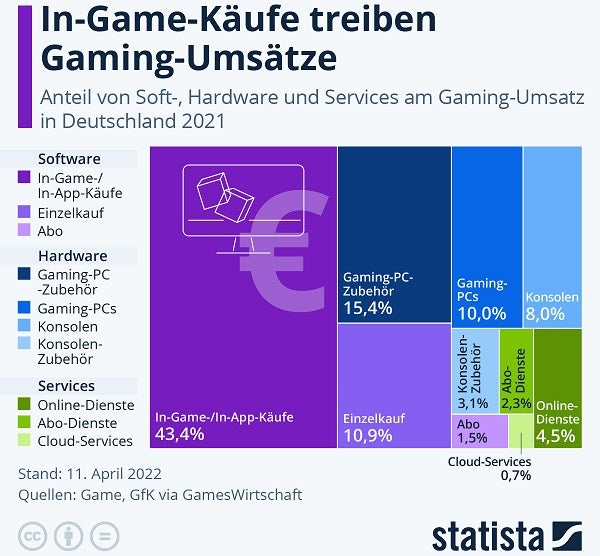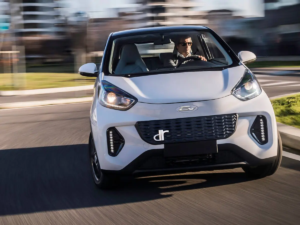With Covid, Russia’s war, energy crisis and inflation dominating the headlines, a trend is emerging in the economy that will take the money out of consumers’ pockets going forward. What the future will ultimately look like, however, is entirely up to us. A comment.

There is hardly a gaming expert who hasn’t complained about the continuous increase in microtransactions and other in-game purchases. Be it loot boxes, additional skins or the purchase of mana crystals – the result is always the same: you pay tons of money for games that you have sometimes already bought. And this concept is now gaining popularity in the “real world” as well.
AFTER-SALES STRATEGY – OR HOW TO GENERATE PROFITS FROM NOTHING
While it was mostly gamers who were affected by microtransactions, these are currently getting more and more encouragement from completely different companies as part of so-called “after-sales strategies”. In the automotive industry in particular, the seed seems to have fallen on fertile ground. Recently, two large car manufacturers made headlines with subscription models that would have been unthinkable before. BMW started with a subscription to the seat heating function. Drivers who want to use this feature have to pay 17 euros a month. The hardware required for this is in the vehicle ex works and was only deactivated on the software side. After all, BMW offers its buyers the option of permanently activating the seat heating function for 385 euros – unlike Mercedes-Benz.
Mercedes would like to earn money elsewhere. Starting with the models Mercedes-EQ EQE and Mercedes-EQ EQS, the German carmaker wants to sell an acceleration boost in the subscription model . Or to put it another way: The manufacturer throttles the engine power that is already available and only releases it again for a monthly fee. Cost point: 1,200 US dollars per year (about 1,150 euros). Although the subscription can currently only be booked in the USA , the trend is becoming more and more apparent. And that also outside of the automotive industry.
Another example is the plans reportedly being pursued by US audio product manufacturer Bose. According to this, Bose wants to introduce a subscription for headphones that unlocks native in-app settings such as an equalizer. However, it is not yet known which features should actually disappear behind a payment barrier.
And these are just a few examples. Numerous companies offer similar services, such as the German manufacturer of smart home products Tado. Its thermostats only recognize open windows if you pay 2.99 euros a month for a subscription.
SENSIBLE OR PURE WASTE OF MONEY?
Before the critics go on the barricades in view of the issues discussed above, it should be said that after-sales measures and subscription models do not have to be bad and can have their raison d’être. Navigation systems are probably the best example of this. New roads are constantly being built and existing road junctions are being modified – such as an intersection being replaced by a roundabout. Keeping the map data up to date therefore requires a lot of resources and is cost-intensive. Consequently, it is also okay if these costs are passed on to the end user in the form of a subscription ( 89 euros per year at BMW ). That’s how our economic system works.
In some cases, such services are even included directly in the purchase price. Smartphones, for example, receive (security) updates for at least two years in most cases. But here, too, work on the part of the company must flow continuously into a service that the end consumer purchases over a longer period of time. Unlike the examples above.
Here, companies want to earn their money with functions that are already integrated into the vehicles in the form of hardware. Nobody has to lift a finger for the features to work. A digital tick is enough and the function is already active. Now, it could be argued that services like heated seats have always cost more, and that BMW is simply saving on the costs that would be incurred in manufacturing different car configurations. And you would be right about that. From a different point of view, however, this would mean that the car manufacturer not only saves costs, but also collects money in a targeted manner. A win-win situation in which BMW itself benefits both times.
A LOOK INTO THE FUTURE
If this trend continues, we must face a future where multiple checkouts are standard for a single product. Sometimes even permanently, as part of numerous subscription models. And that’s far from an exaggeration, as the gaming industry shows. According to information from the market researcher GfK, the share of in-game and in-app purchases in gaming sales in Germany was a whopping 43.4 percent in 2021. This figure does not only refer to the games themselves Hardware sales such as gaming PC accessories (15.4 percent), gaming PCs (10.0 percent), and consoles (8.0 percent). Individual purchases, on the other hand, now only account for 10.9 percent of total sales.

As the end user, it is now up to us to set a clear signal. Because how the future development of real-life microtransactions and subscription models for products already purchased will proceed depends largely on whether the services offered are popular with the population – or not.


